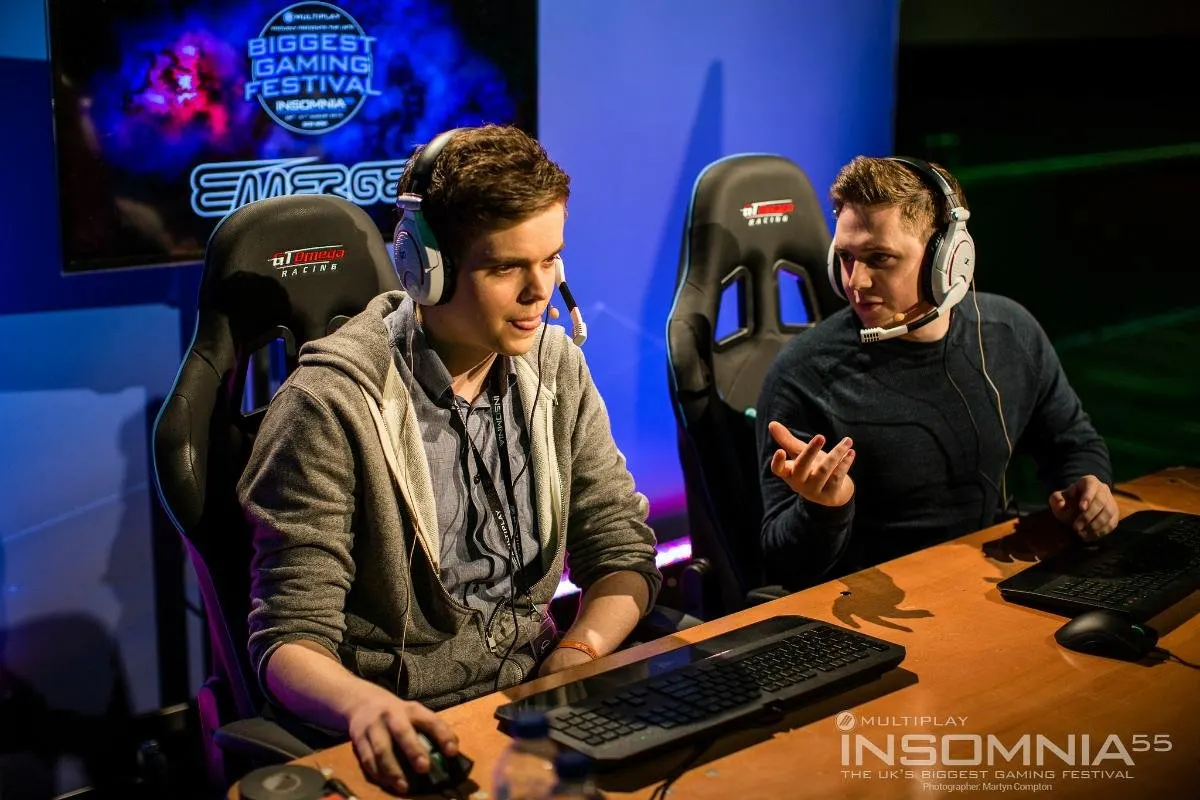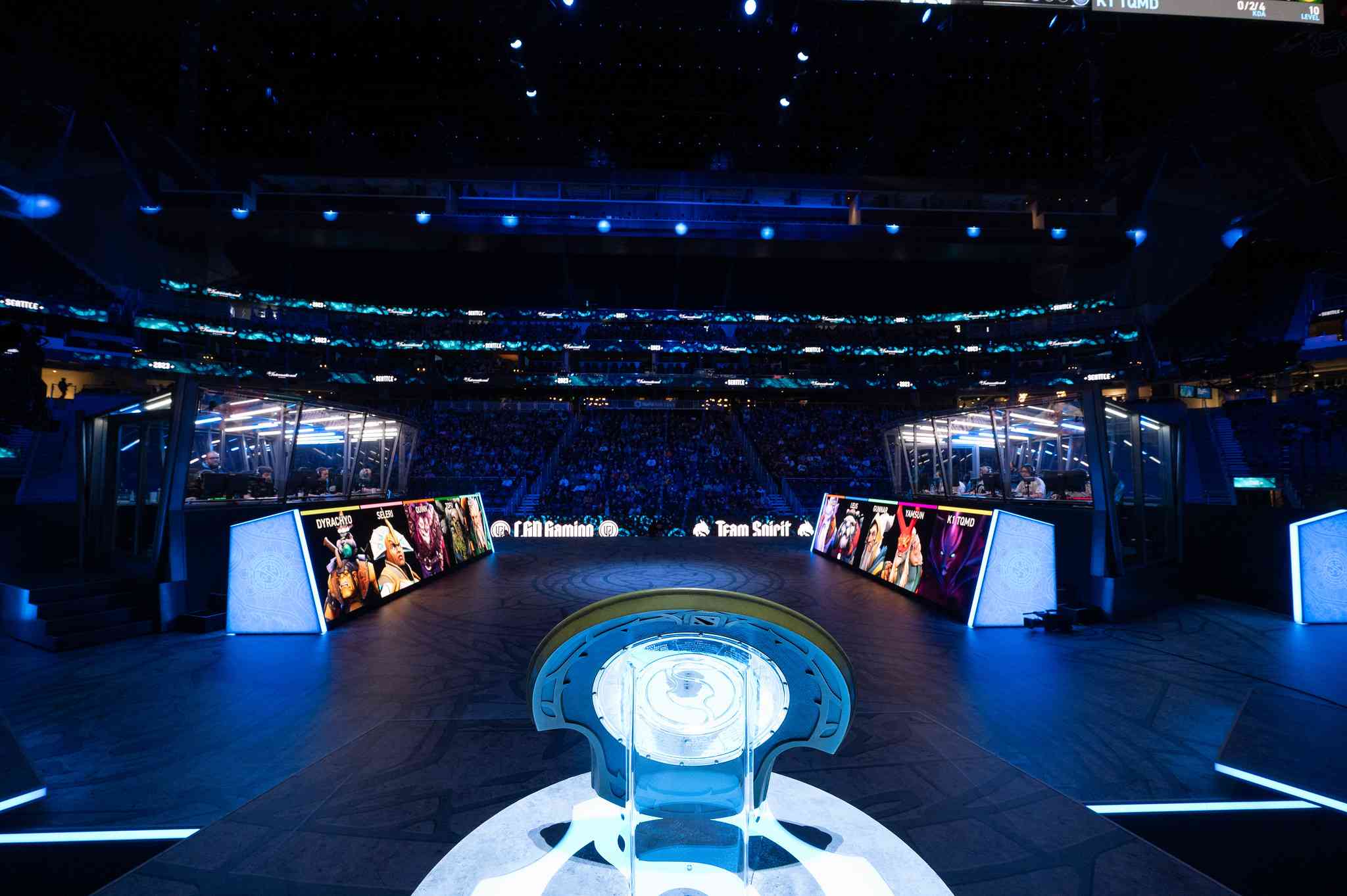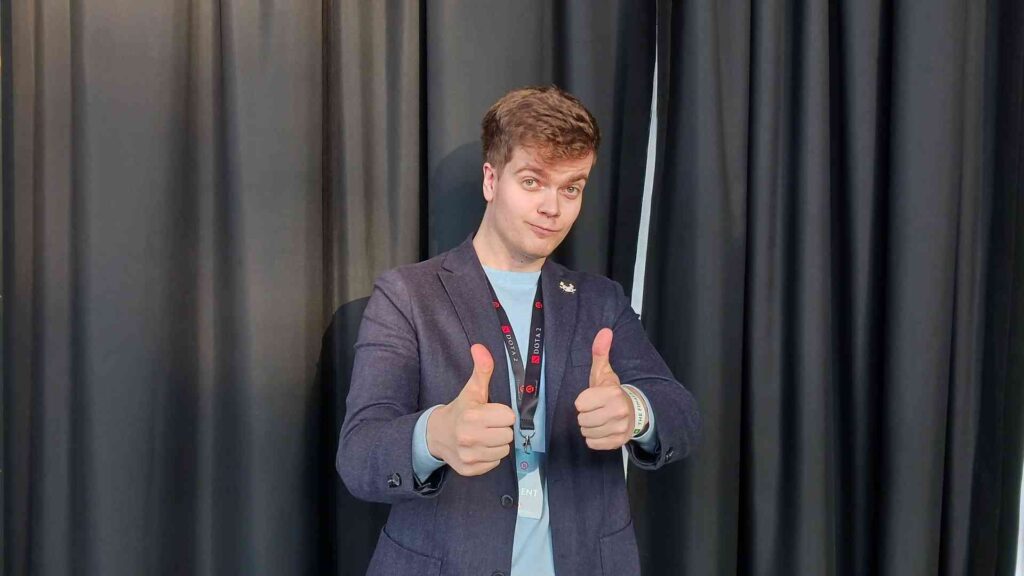In the second part of BLIX’s interview with Dota 2 caster Owen ‘ODPixel’ Davies, he covers how he looks back at his journey to prominence within the scene, how he will look ahead to 2024 and beyond and much more. If you missed part one of the interview, check it out here.
Looking back at his road to prominence
BLIX: When it comes to looking at an individual’s career and how they develop, a lot of the cases concern people that go about their business with risks, and despite doing it on the short-term level, they were able to get into a position where they can now settle down and just work long-term and looking at how you did it, you were able to do exactly that. Was there a moment in time in which you felt that you were not going to be able to get into that long-term settling position that you’re currently in?
Owen ‘ODPixel’ Davies: I don’t know if I ever really worried about it or not because, for me, doing what I do was never like a “make it or break it” thing. I would always be like, “Well, I’ll do something else with my life.” And honestly, if I wasn’t able to do what I was doing to the level I’m doing it now, I would still be doing it on my stream and just as a hobby. If I wasn’t able to do it full-time and get to go to these fantastic events, I’d still play the game, and I’d still cast the game. Obviously, I wouldn’t ever prefer that life over the life that I have now, but it wouldn’t be something that I’d be too afraid of because I believe there’ll be other exciting opportunities for me outside of casting Dota 2.
BLIX: What are you most thankful for now that you’re in this position where people look at you as the gold standard of Dota esports casting?
ODPixel: Definitely the fans, of course. The fact that there are still people who listen to me and enjoy listening to me today who were listening to me nine years ago and the fact that people are vocal in what they like about my casting, I’m very thankful to those. Honestly, I’m even thankful to those who over the years, have criticized aspects of my casting, and I’m very much a believer that criticism is very important when you’re in a position like me.
As nice as it is to read all the flattering comments over the years, I have definitely managed to improve and take away things from comments that I’ve read online that talked about something they don’t like about what I’ve done. Sometimes, it might be criticizing something that I can’t change, but sometimes, it has been something that I can take something away from and just try and better myself and aim to create a better product that even more people will enjoy listening to. I’m just incredibly thankful to anyone who has listened and anyone who’s engaged and anyone that’s commented on my work over the years.
BLIX: I feel like there’s a sort of pressure when it comes to being in a position at the top of the casting world for whichever game there is and people looking at you as someone that basically does no wrong. Do you feel like this kind of thing affects you in a negative way? Or do you feel it’s unfair that people always look at you as someone who doesn’t make mistakes but is also human?
ODPixel: People shouldn’t look at me like that because I noticed that I will make mistakes during a game. In my head, I’m like, “I said that wrong,” or “I misspoke there about this spell,” or “I said the wrong player’s name.” I would want to make sure that people who do listen to me and are aware of me don’t think that I’m some sort of perfect thing because that hinders other people trying to get into the industry and get to where I am. Don’t think I’m perfect because you don’t need to be perfect to get to where I am.
I make mistakes all the time, so if you’re a caster and you’re making mistakes and you get really down about it, don’t let that bring you down because, trust me, I make mistakes all the time. I don’t know how people don’t notice it. I’m very grateful that people don’t notice it, but even I really do. I make mistakes pretty much every game. I’m sure you can listen to every game I’ve ever cast, and you could be like, “Hey, ODPixel said that wrong.” So, as I say, in anything that you do, don’t worry if you’re not perfect at it because, even as someone who you might think is the best at it, I can guarantee to you they still mess up quite a lot.
 Looking at another past gig for ODP from when he was at Insomnia 55 (Image Credits: Multiplay)
Looking at another past gig for ODP from when he was at Insomnia 55 (Image Credits: Multiplay)BLIX: What’s your biggest pet peeve in your casting nowadays?
ODPixel: Honestly, just running out of words. I commentate quite fast, and in my head, I would sometimes hear myself say something that I’ve said already or use the same phrase or the same words. It’s always an extra bit of a challenge to try and find different ways to say things, and I’m very aware when I’m going back to the same common phrases that I tried to stray away from. So, I’m definitely trying to avoid being too repetitive, which is quite difficult when you’ve cast as many games as I have. Also, one of the things I’m surprised that people still like listening to me talk about Dota because, since I’ve talked about it so many times, I would have thought people would be sick of me by now, but apparently they’re not, so honestly, I consider that nothing less than a miracle.
BLIX: What are some examples of those repetitive catchphrases that you find yourself doing?
ODPixel: That’s the thing. I wish I knew. There’s something about my brain where it kind of gets stuck when it comes to that. In the moment, I’ll say something over there like subconsciously thinking, “Oh, I say that quite a lot.” But now that we’re in a position where you ask me, I couldn’t tell you. I wish I could probably sit down and start to list them because that would probably help me stray away from them, but I don’t know. But I’m sure someone while reading this interview will be like, “Yeah, ODP says this all the time. This is a word he goes to or something,” but no if I knew, I would probably be able to do a better job of stopping repeating myself.
BLIX: Taking a look at the new crop of talent-slash-casters that are making a name for themselves within Dota, which person stands out to you the most and why?
ODPixel: I think it’s always the new people that are kind of the pros that turned to analysts that stand out the most, so someone like Fear [Clinton Loomis]. This is the first TI Fear has been on the panel as an analyst. This is the first season that he started doing the analyst work, and I think he’s been fantastic. I don’t think it’s as easy as people think for pro players to just get on the panel and say stuff and be great to listen to, but Fear clearly puts a lot of work into how he presents himself and how he conveys his ideas over, and it’s something that comes across really well and I don’t think it’s easy. Despite how good and how great he was at the game, taking that knowledge and making it fun to listen to in a panel situation is not easy, so I think Fear stands out as someone who just really put in the hard work over the last year and I think it really paid off. People have just instantly accepted him as an expected member of the panels, and it just goes to show how well he’s become a part of the broadcast crew.
BLIX: When people talk about you and your highlights, people always look at the TI 8 grand finals as your best-ever casting, but what’s one cast that you feel people should pay more attention to aside from the usual recognizable ones?
ODPixel: That’s a hard one. There are so many games, and my memory is terrible. I kind of forget the games as soon as I finish them. I’m looking towards the next one. I do seem to remember the TI 9 grand finals. That was definitely something that I felt I did a better job at because, obviously, the TI 8 grand finals was my first grand finals and I was very nervous. I’m glad such fun moments happened from it, and people enjoyed it. I never get nervous, but in the TI 8 grand finals, I did get nervous because of the extra pressure of being in the grand finals.
You’re on what should be the most important series of the year, so you don’t mess it up. Every other game is whatever. It’s not the TI grand finals, so that was the only time, really, I got nervous. TI 9 comes around and because I’ve done the grand finals before, I was much more relaxed, and therefore, I was able to do a better job just holding things together. But, at the end of the day, maybe just the extra craziness and nervousness added to a wilder performance during the TI 8 grand finals and maybe that one was just better. However, at TI 9, I was able to try a bit harder and focus a bit more without panicking as much as I was a bit before the TI 8 grand finals.
Looking to 2024 and beyond
BLIX: Taking a little bit of a focus over to the future, I gotta mention the DPC since it will be no more post-TI and into 2024. Where do you think pro-Dota goes post-TI and into the future?
ODPixel: Yeah, I don’t know. I’d say it’s kind of exciting. I’m always down for the chaos of not knowing what’s coming next, and we’re certainly getting that with the fact that there won’t be DPC in the traditional sense of having a Div 2 and a Div 1. By the sounds of it, it’s going to be a series of events or LANs. It’s not really too clear at the moment. It’s not going to necessarily be a bad thing. I think, if anything, it’s going to have good effects on the scene and on the content that’s gonna be out there for viewers and players to enjoy.
Obviously, before DPC, Dota was a pretty flourishing esport when it was just events all over the place, and we’re going back to that, and I think it’s gonna be good. We already know that the next TI has been confirmed. They said they’re working on it. We don’t know how the events are going to lead into TI, but I think it could be an exciting year. Change is always good. I think the DPC kind of did what it was set out to do. It was a good platform for a lot of newer players to come in at the Division 2 level and get up to Division 1. We’re now at a place where we’ve got a lot of great players from a lot of different regions, so let’s see how things go with this new event system that they seem to be alluding to. I think it’s gonna be good, and I think pro-Dota is going to be perfectly fine.
 What’s next for the pro-Dota scene after TI 12? (Image Credits: Valve)
What’s next for the pro-Dota scene after TI 12? (Image Credits: Valve)BLIX: Looking back at the DPC, what were some of the biggest cons that you saw of the format?
ODPixel: Honestly, I think the DPC system was good having the leagues. Maybe the downside was just the way things worked with the scheduling. They obviously tried a few different ways of getting all the Div 1 games done in a few weeks or having to play out over a longer period. They were trying to find a balance with that, so maybe the fact that it didn’t allow as many events as we’ve had in the past because you have whole blocks of the year taken out where teams needed to be playing the DPC games and they couldn’t be traveling and playing LAN events.
I’d say that was probably the biggest downside and is obviously something that we’re not going to have next year. At the end of the day, Dota 2 is best played when it’s in front of a crowd, when you’ve got the teams on LAN, and obviously, in DPC during the seasons, you didn’t have that. It’s long periods of the year where everyone was playing from home, and that’s just not the most exciting way to experience Dota and esports.
ODPixel: ‘Change is always good. I think the DPC kind of did what it was set out to do’¦We’re now at a place where we’ve got a lot of great players from a lot of different regions, so let’s see how things go with this new event system that they seem to be alluding to.’
BLIX: With that said, about everything that you talked about, what’s going to be your main goals now that you’re in this high position, not just for next year but beyond that?
ODPixel: I don’t really know. Just keep exciting people and keep producing casts that people think are at the top level. That’s sort of it, really. I don’t really have any goals outside of it, I think. I’m very comfortable in the position I’m in and getting to do what I get to do, and the fact that so many people like listening to me and doing what I want to do. My goal is to keep that position as long as possible but also not be afraid of the day that drifts away, and people finally get tired and sick with me. I’ll be sad when that happens, but I’ll also be welcoming to whatever comes next in life after casting Dota. So yeah, I’m just trying to keep it going as long as I can.
BLIX: One final question before we wrap it up: if you had a time machine to go back to talk to your younger self and you had one thing to say, what would you say?
ODPixel: As cliche as it is, I would just say don’t stop doing whatever you love doing. If I stopped casting, I would never have found myself getting all the opportunities that I did, and I kept doing it because I love doing it. And I’d say sort of the same to anyone else, you know? If you’re out there doing something that you’re passionate about, as long as it’s not impacting your health or your lifestyle’don’t go and quit your job. Don’t quit your education to pursue it necessarily or whatever you like doing, but do it to a certain extent. That’s because if that, one day, does take you somewhere and leads to you being able to do it as part of your career or part of your full-time, then it’s amazing. So yeah, just don’t give up.


